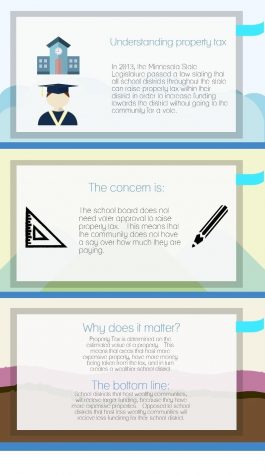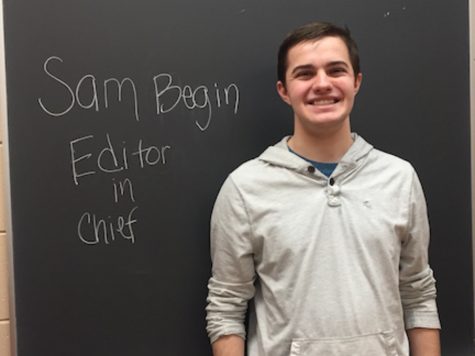Taxation without representation
February 24, 2015

It is tradition to have voters approve any local tax increase. After all, did colonial Americans not decry the British’s taxes with the slogan, “No Taxation without Representation?” As citizens of a free country, Americans have a right to decide where and to what to put their money into, if anything at all. But, the growing problem of wide disparities in school maintenance in Minnesota due to a lack of funding in some districts must be addressed. Schools must be allowed to raise taxes in order to conduct maintenance and keep them up-to-date.
Currently, 25 Minnesota school districts have the power to raise resident’s property taxes without requiring their direct approval. However, all other school districts do not possess that power and must seek the voter’s approval through a traditional referendum.
As CBS reported, that change has “led to a big gap in funding among districts for things like carpet replacement, security upgrades and heating and cooling modernization.”
The fact that this disparity exists is completely unfair. How can one group of students be prioritized over another? We are all entitled to a quality education, no matter their residence or background. State Senator Karin Housley said, “It’s not fair. A building ages the same across the state.”
All schools eventually have to replace their textbooks to keep up with new knowledge and standards. All schools have to keep their security systems modern in order to best ensure the safety of their students. These things absolutely have to be done.
The school eventually does do the critical maintenance to make sure the school can still open the next day. However, any money taken to do this maintenance is taken from teachers. In addition, having a cold or uncomfortable room is a distraction for students and makes learning that much harder.
District 834 has the benefit of being one of those 25 schools able to raise tax rates without asking the voters. The result is that the school is able to put its money towards purchasing newer textbooks, paying teachers, getting new technology for the students and most recently, expanding SAHS. This can all be done while the schools in the district are well-maintained and without many of the problems plaguing districts not able to operate like Stillwater.
Kristen Hoheisel, the district’s finance director on the levy money, said, “It is essential as it allows Stillwater Schools to pay for maintenance up front and avoid a heftier check later.”
The argument can be seen for why all school districts do not already utilize this method of bypassing the voter, for that exact reason that voters are not able to directly approve or refute these increases. However, citizens have a duty to ensure that children are getting the best education possible and allowing schools to raise taxes to pay for maintenance is the way to do it. Also, voters do have indirect power to decide whether or not these increases are necessary by serving on the school boards.
Raising property taxes by schools without asking the voters may sound like a perversion of the democratic system, but indeed it is necessary to ensure that schools will always be of high quality not just in this state, but in the entire country.








Abby Kunze • Mar 31, 2015 at 8:17 pm
All the supports were incredibly thought out and made sense to me, while word choice was still elevated. The editorial position was also clear from the very beginning.
Alexander Pavlicin • Mar 31, 2015 at 8:00 pm
You provided excellent background about the phrase taxation without representation and then applied it to today, which is not always easy to do. The links were well thought out and the lead captivated me from the start.
Megan McGuire • Mar 29, 2015 at 3:06 pm
This article was very well put together, with an informative and organized structure. The sources used are influential people that really made this article credible and interesting to read. A good stance on this issue, was taken using logical and informative facts. I really liked the lead, it made me interested right away.